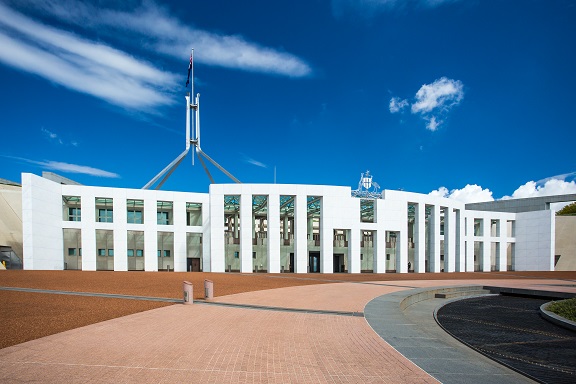Industrial relations reform blunders mask employment wins
2 Oct 2023
|Opinion Editorial

Last week the Albanese government released its 251-page White Paper on Employment after more than a year in development.
It had a number of useful initiatives, including a $41m boost in funding for TAFE centres of excellence, a promise to develop a national skills passport, and a permanent extension of the increased pension work bonus.
Notably, for a major paper on employment policy extolling the very worthwhile goals of a more inclusive, flexible, and productive labour market there was barely a mention of the government’s current industrial relations agenda.
The business community noticed the absence of industrial relations discussion because it is the elephant in the room.
The government’s proposed industrial relations changes are so large and damaging to the economy that they dwarf the positive measures announced in the White Paper.
The workplace changes proposed, such as making it harder to hire casuals, reducing flexibility in the gig economy, reducing the ability to use labour hire, asserting control of supply chains, and pushing right-of-entry of unionists into workplaces, will each be significant steps backwards in flexibility and productivity.
The changes run in the opposite direction to the liberalisation of the labour market undertaken by former Prime Ministers Bob Hawke and Paul Keating, and counter to the needs of the modern Australian economy.
A key part of the very strong performance of the Australian economy over recent decades has been our flexible labour market, and it would be an act of deep folly to abandon that advantage in the pursuit of an utterly misleading and economically illiterate narrative about higher nominal (not real) wages and fictitious job “security”.
The proposed industrial relations changes appear to have no policy basis other than the impatience of the trade union movement to bring about a more government-regulated employment and wages system.
The notion that wages should be based on effort, or experience, or productivity, is being overturned by a push for government-enforced “same pay”. The idea that the best place to decide workplace arrangements is at the individual enterprise is being replaced by moves to shift these decisions to the Fair Work Commission.
The 800 pages of draft legislation currently before the parliament looks like a fantasy product of industrial relations lawyers who have no understanding of the business world or the broader economy.
The sheer complexity of the bill will be stressful, costly, and time-consuming for businesses already struggling to comply with a notoriously difficult system.
The time has come for Anthony Albanese and Jim Chalmers to wrest back control of the policy agenda to a more coherent and ambitious vision for economic prosperity.
Policymakers in charge can no longer ignore the productivity-harming effects of the industrial relations changes and pretend that they are a separate issue to economic management.
Workplace arrangements affect and shape every single employer and every single employee in Australia. They profoundly influence how well businesses can function, manage, adapt, and compete. They are critical to our economic prosperity.
When industrial lawmakers and lawyers propose to clag up the system with rigidity and red tape it’s time for economic policymakers to say “no” – you are not going to drag down the economy for the benefit of sectional interests.
The context for the industrial relations changes is relevant to note: productivity growth in Australia over the past decade has been the worst in sixty years, with current levels going backwards. The Productivity Commission has warned that this means lower living standards in years to come.
The Regulatory Impact Statement accompanying the current draft legislation analyses a variety of aspects such as complexity (it expects compliance costs for business to go up considerably) and broader labour costs to business (an additional $9 billion over ten years), but it does not address the question of productivity or economic impacts.
One way for Cabinet to avert a possible productivity calamity affecting all portfolios would be to pause the Bill and commission a thorough assessment of the economic impacts of the draft legislation by the Productivity Commission.
Such a step would allow Cabinet to satisfy itself that the legislation was being fully examined for possible economic effects and unintended consequences before being imposed on the Australian business community.
The government is pursuing a range of creditable policy initiatives in different areas, but it would be regrettable if these achievements were rendered meaningless because of a series of blunders on industrial relations policy.



